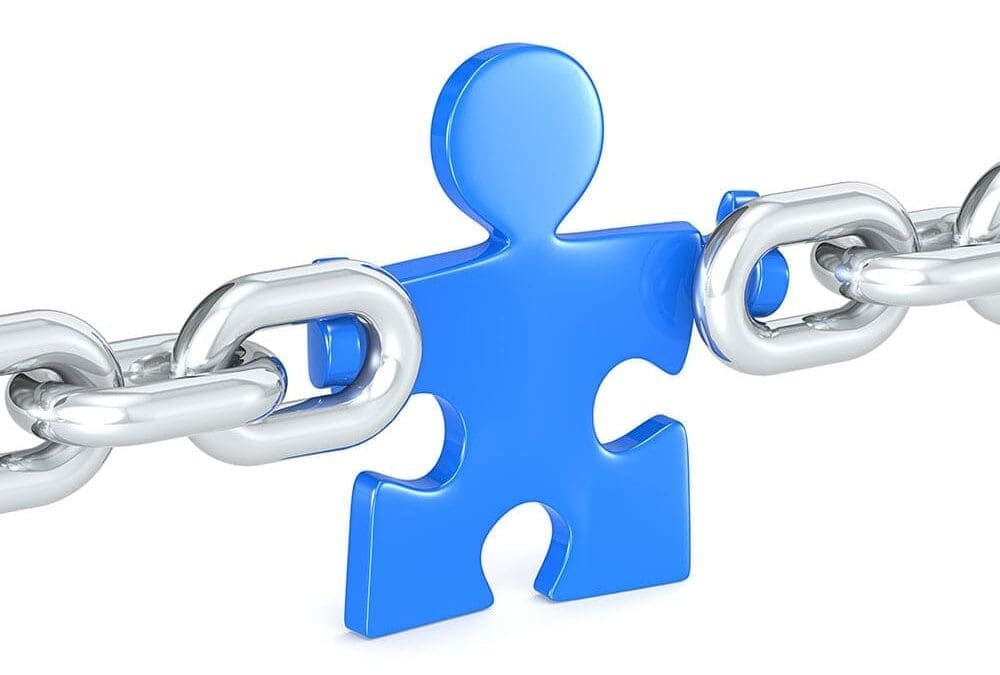Missing Link, according to Oxford Dictionary, is “a thing that is needed in order to complete a series, provide continuity, or gain complete knowledge.” Being a successful leader takes foresight, character, and the ability to effectively set expectations balanced with consistently managing employee performance. That last part is what derails many leaders in their quest for success. Accountability is often the missing link.
Why is Accountability Such a Challenge?
Most people (including managers) don’t like confrontation.
> Initial expectations were set poorly.
> Managers want their employees to “like” them.
> The company culture is too “easy going” or “laid back.”
> There are too few or no consequences for poor performance.
> Performance goals are ambiguous or not easily measured.
BUILD YOUR LEADERSHIP FOUNDATION
Warning Label
Some level of a performance management issue is common within organizations of all sizes and industries. Often the impact is contained within a specific area or areas of business operation. In some cases, however, it travels through the organization like a virus. A virus that slowly and deliberately erodes productivity to a point where frustration and blame become the top words employees use to describe their workplace culture. Catch it early! Left unchecked it will cost you.
It Starts at the Top
You’ve heard us say this before, developing a strong and success-driven culture begins at the top. When senior management is willing to answer to the outcomes of their choices, employees will take note. By making things right instead of pointing fingers or deflecting responsibility, leaders illustrate their dedication to the company and their teams. Ownership is that elusive component of employee engagement that cane elevate your company culture to the next level.
Accountable vs. Motivated
Holding your employees accountable should not be confused with motivating them to reach their full potential. But these are two interrelated skills every leader should possess and exercise at the appropriate opportunities.
Motivating employees requires leaders to understand what is at the root of each employee’s passion in life. For example, most healthcare workers are driven (at some level) by a passion to take care of others. For engineers, it might be discovery or innovation. Armed with this knowledge, leaders can leverage their motivational energy to encourage their employees to take on more responsibilities and new challenges.
The practice of accountability is slightly more fundamental and necessary for those employees who don’t measure up to the minimum performance requirements. It is a high performance building block that starts with leaders establishing clear goals and objectives; and helping employees understand how their efforts contribute to the overall success of the organization.
What it Should Look Like
The key ingredients to creating accountability are accuracy and consistency. Every employee needs to know what is expected of them, how to improve, what they are doing well, and how their efforts are measured. As with many leadership strategies, building trust opens doors. An environment where employees know they can fail and grow, and self-regulate, will motivate them to do the best they can not only for themselves, but for the company as a whole. The best way to create sustainable success is to make accountability part of your culture and leadership philosophy.
State expectations clearly and consistently
Each of your employees needs a crystal clear understanding of what is expected of them; specific results, timelines, non-negotiables, and their authority level. Just as important, be sure to provide them with the global view of the world, that is, how does their contribution fit into the organizations strategic plans.
Be willing to initiate, and be prepared for, performance management discussions
Most people do not like confrontation. But it is the leader’s responsibility to act at the appropriate moments. Research the performance issue carefully. During the performance dialog describe what you see happening and your concerns, but don’t make it personal. Invite and listen to comments, and then ask for a commitment to improve their behavior.
Conduct performance reviews
Schedule a follow up meeting to review progress based on their commitment and incorporate the same information in their formal performance review. The formal performance review can be an extremely powerful tool for a performance leader. This is especially true in today’s working world where people work more independently, and there are fewer opportunities for the manager and employee to step back and look at what’s happened and decide where to go in the future.
Summary/Conclusion
Increasing the level of accountability in your organization will produce noticeable improvements related to productivity, efficiency, growth and sustainable success. Knowing how to interject accountability into your leadership approach is the challenge. Start with understanding your role. Create clear expectations, communicate consistently, and establish check points.
LEARN MORE ABOUT OUR LEADERSHIP DEVELOPMENT PROGRAMS
“Responsibility equals accountability equals ownership. And a sense of ownership is the most powerful weapon a team or organization can have.”
–Pat Summitt
Start Your Journey to Success
We’re ready, are you?
We know that every company has a unique set of challenges. Our perspective can help simplify what needs to be improved and our time-tested methods can provide clear steps toward your performance goals. Contact Liddell today.


